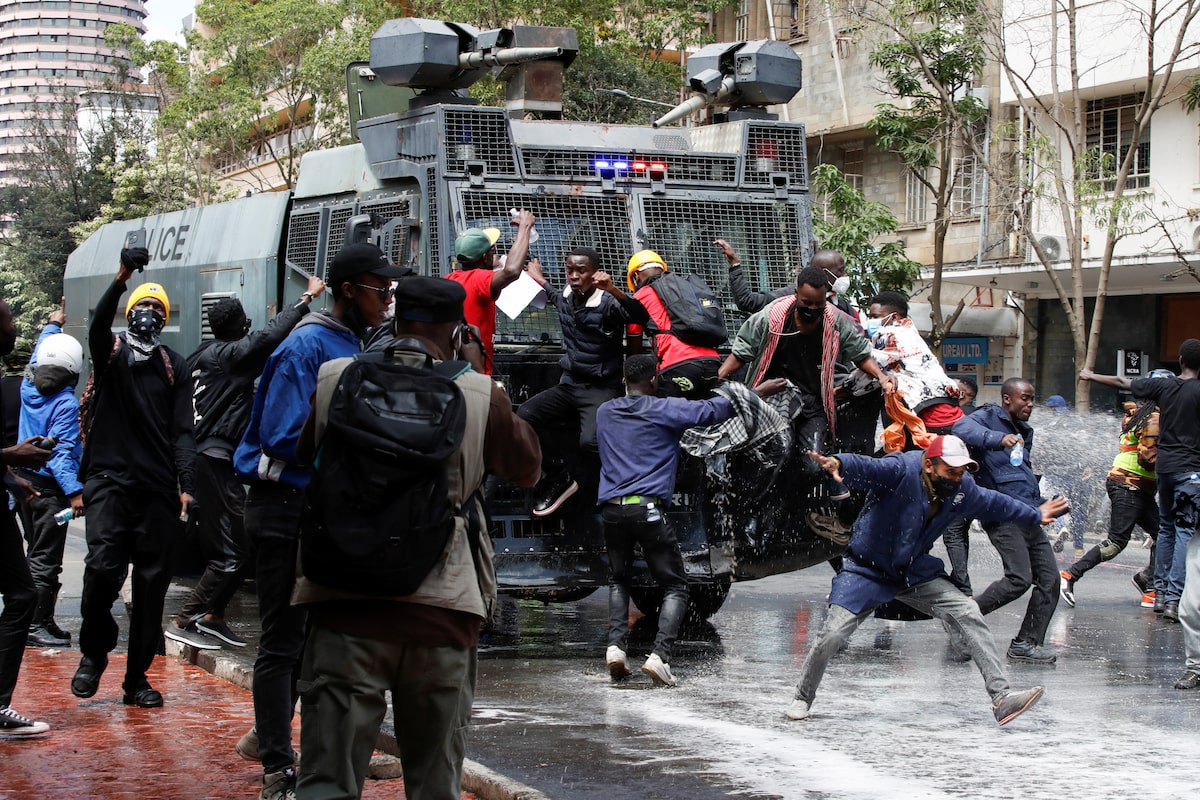Audit exposes civil servants’ mismanagement of millions in imprests across ministries

The Institute of Certified Public Accountants of Kenya (ICPAK) says the problem has persisted for years despite repeated warnings from the Auditor-General and Parliament.
A new audit review has exposed widespread mismanagement of imprests by government officers, with millions of shillings still unaccounted for across ministries and departments.
The Institute of Certified Public Accountants of Kenya (ICPAK) says the problem has persisted for years despite repeated warnings from the Auditor-General and Parliament.
More To Read
- New Bill seeks to safeguard pensions for dismissed government workers
- Funding cuts spark urgency in state corporation shake-up, says Parliamentary Budget Office
- Government’s increased revenue strategy faulted amid missed targets, public backlash
- Controller of Budget flags 16 counties for concealing true staff expenditures
- Bill proposes separate bank accounts for each State project to boost accountability
- Treasury rolls out new plan to expand financial inclusion in Northern Kenya
According to the Public Audit Review Report for Ministries, Departments and Agencies (2020–2023), the failure by officers to surrender or account for cash advances issued for official duties remains one of the biggest weaknesses in government financial management.
The report shows that in many cases, imprests were either retained long after official assignments ended or were not supported by any documentation.
ICPAK’s Ad Hoc Committee on Public Audits Chair David Njoka said the review found worrying patterns where officers continued to draw multiple imprests before clearing earlier ones.
“The Public Finance Management Act is very clear that one ought to surrender or account for the imprest within seven days after completing official duties. However, our review found instances where a single officer held as many as six separate imprests at once, with delayed or missing surrenders,” Njoka stated.
The Ministry of Health was among those cited for holding large amounts in unretired imprests and long-pending deposits.
Similarly, the Ministry of Education recorded repeated misstatements and missing documents linked to funds issued for Free Primary and Free Day Secondary Education programmes.
In the 2022/23 financial year, missing records and unverified disbursements amounted to hundreds of millions of shillings.
Njoka noted that the situation is not confined to one sector, saying the same pattern is seen across key ministries, including Roads and the National Treasury.
“The challenge is not just in policy; it is in enforcement. Officers continue to flout financial procedures without consequence,” he said.
At the National Treasury and Economic Planning, the audit highlighted unaccounted promotional materials, long-pending salary advances, and unsupported expenditure balances.
The ministry was also found to be operating without a fixed assets register and had not fully reconciled its advances, raising questions over financial discipline in the country’s top fiscal office.
The State Department for Roads was also faulted for long-outstanding deposits and incomplete petty cash schedules, while the Technical and Vocational Education and Training (TVET) department failed to reconcile its bank records and address past audit issues for three consecutive years.
ICPAK chair Elizabeth Kalunda said that while audit outcomes have shown slight improvements, many public institutions still face persistent issues.
“From the report, it is evident that while there have been notable improvements in the number of unmodified audit opinions, a majority of public institutions continue to face recurrent audit queries, including unsupported expenditures, weak internal controls and unresolved prior-year issues,” she said.
The Institute warned that between 2020 and 2023, more than half of all ministries and agencies reviewed had recurring imprest misstatements. It called for stricter oversight and full enforcement of financial regulations to restore accountability and prevent further abuse of public funds.
Top Stories Today










































